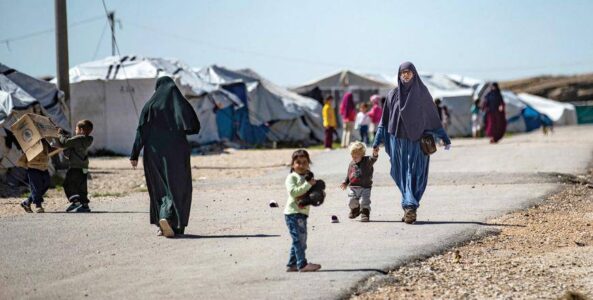
Two children die every week in camps for Islamic State families in Syria
Two children die every week in Al Hol, one of the overcrowded Syrian camps where families with suspected links to ISIS are stranded, according to Save the Children.
The charity said many countries, including EU states, were abandoning thousands of children in their desert limbo, vulnerable to violence, fires, malnutrition and illness.
Save the Children said a total of 40,000 children from 60 different countries were living in dire conditions in the camps of Roj and Al Hol in northeastern Syria.
“Many of the world’s richest countries have failed to bring home the majority of their children stuck in” the two displacement camps, the group said.
It said 62 children had died of various causes this year, including violence, disease and accidents, and 73 people, including two children, were murdered in Al Hol.
The remote camps managed by the Kurdish forces that control the area were meant to house the families of men who had been detained over suspected ties to ISIS.
However, they also hold many families who simply fled ISIS occupation of their homes in Iraq and Syria. Some have been there for more than four years.
Save the Children interviewed several children trapped behind the fences of Al Hol, where they live like prisoners and from which their governments are unwilling to repatriate them.
“I cannot endure this life any more. We do nothing but wait,” said one 11-year-old Lebanese girl who was interviewed in May and was since reportedly killed during a failed escape attempt in a water truck.
The charity said France had 320 children in both camps but only repatriated 35. The United Kingdom had 60 and brought home four.
“What we are seeing here is governments simply abandoning children, who are first and foremost victims of conflict,” said Sonia Khush, director of Save the Children’s Syria response.
She said 83 per cent of repatriation operations so far had been to Uzbekistan, Kosovo, Kazakhstan and Russia.
The Kurdish authorities running the area consistently said they did not have the capacity to organise trials for all the detained foreign suspects nor support their families.
France and other western countries have been wary of the impact mass repatriations could have on domestic security and public opinion.
Source: The National News





